Greg LeClair was 7 when he began his career in environmental science, though he likely didn’t know it at the time.
He went outside his house in Litchfield one warm, rainy, April night and noticed something extraordinary in his driveway — a 7-inch long salamander.
“It was really exciting to see, for a 7-year-old,” he recalled.
Every spring after that, he went searching for nighttime salamanders, frogs and other amphibians crossing roads. Some were alive but some, sadly, had been hit by vehicles. He began picking up the ones that were alive and carrying them to the side of the road in the direction they were traveling.
He continued this practice while a student at Oak Hill High School in Wales, from which he graduated in 2014, and then at Unity College where he majored in wildlife biology with a minor in environmental education. At Unity, he started inviting friends to join him several nights during the migration season, from about March 15 to May 15. Carrying flashlights and donning brightly colored vests, they’d go to mostly forested wetland areas to help amphibians cross roads to get to areas where they spawn. During his senior year in 2015, he organized it into a full-blown program and he and volunteers recorded data.
“In 2019, it grew to a statewide program,” he said. “Especially in 2020, when the pandemic started, people were looking for something to do and this was a good way to get out and be safe. It grew exponentially after that.”
LeClair, 26, now of Waterville, called the program Maine Big Night, which had its largest year this year, involving about 400 volunteers from Aroostook County to the coast and including western, central and southern Maine. Participants since 2018 have helped move to safety more than 10,000 amphibians, including spotted salamanders, blue spotted salamanders and wood frogs. LeClair said Maine has several species of salamanders and several species of frogs.

Greg LeClair carries a green frog that he caught and released Tuesday night while doing research in a vernal pool in Unity. LeClair, of Waterville, is studying for his doctorate in ecology and environmental science. He said the green frog is common in Maine and the second largest in the state after the bullfrog. Rich Abrahamson/Morning Sentinel
He also is working with the state Department of Transportation to seek funding from the federal government to build wildlife corridors, or road crossing structures, in places determined to be hotspots.
LeClair’s work has not gone unnoticed. He is one of six young environmental leaders from around the state who in July will receive a 2022 Brookie Award from Natural Resources Council of Maine Rising, the young member arm of the Natural Resources Council of Maine. The high school or college students, ages 16 to 26, will be honored for creatively implementing solutions to environmental issues in Maine involving climate action, clean energy, safe drinking water and wildlife conservation.
NRCM CEO Lisa Pohlmann says the contributions of LeClair and others have made her hopeful for the future of the environmental movement in Maine.
“We’re grateful to every one of our 2022 Brookie Award winners for leading by example and pushing us all to build a healthier, more equitable future for Maine’s environment and communities,” she said in a news release.

Greg LeClair holds a dragonfly nymph that he caught and released Tuesday night while doing research in a vernal pool in Unity. LeClair, of Waterville, is studying for his doctorate in ecology and environmental science. Rich Abrahamson/Morning Sentinel
Todd Martin, NRCM Rising director, echoed Pohlmann’s comments, saying the winners are building on Maine’s legacy of having a long and proud history of environmental leadership.
“From York to Washington County, from coastal communities to rural towns, our 2022 Brookies are working to protect the woods, waters and wildlife that make Maine such a special place to call home.”
LeClair now is a full-time doctoral candidate at the University of Maine’s flagship campus in Orono, studying ecology and environmental science. He does research and teaches lab courses in biology. After he acquires his doctorate, he said, he hopes to get involved in endangered species conservation.
“I’m very flexible in what this looks like, and what species,” he said. “International work would, honestly, be the dream.”
Meanwhile, he will continue his annual Maine Big Night program, which continues to surprise and delight volunteers.
“This is the first year we detected Maine’s rarest salamander — the spring salamander — which is 6 or 7 inches long and bright pink,” he said. “They’re amazing — definitely a symbol of climate change in our state because that species needs really cold streams to survive. It needs to climb to higher and higher elevations.”
LeClair will be given his Brookie Award on July 14 at a ceremony and reception in Portland emceed by Hannah Pingree, director of the Governor’s Office of Policy Innovation and the Future. As part of the award, he will receive $2,000 in cash and a short video about his work, as well as opportunities to engage in a six-week public speaking and speechwriting training program and attend a nature-based retreat.
Amy Calder has been a Morning Sentinel reporter 34 years. Her columns appear here Saturdays. She may be reached at acalder@centralmaine.com. For previous Reporting Aside columns, go to centralmaine.com.
Send questions/comments to the editors.


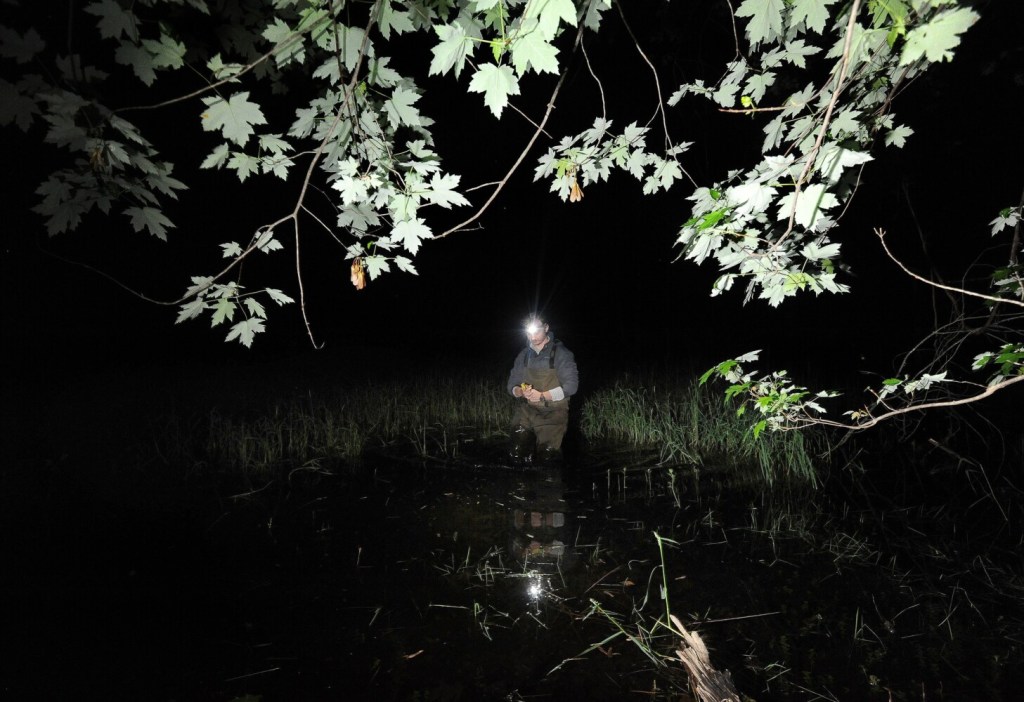

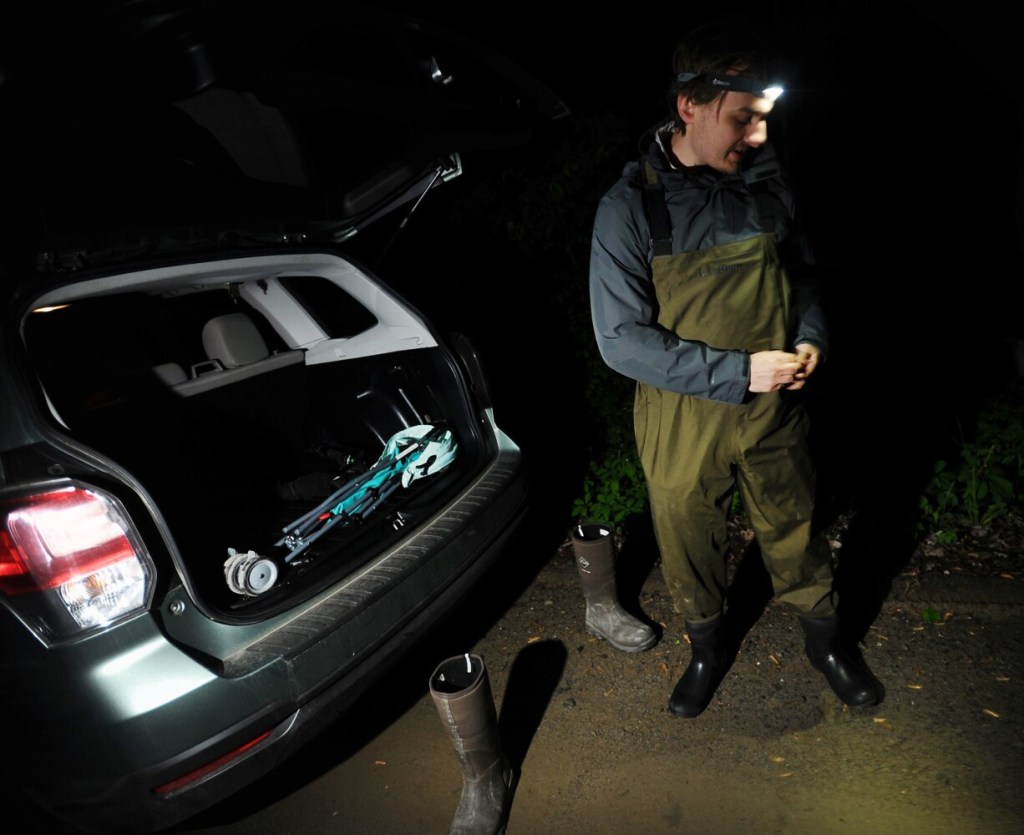
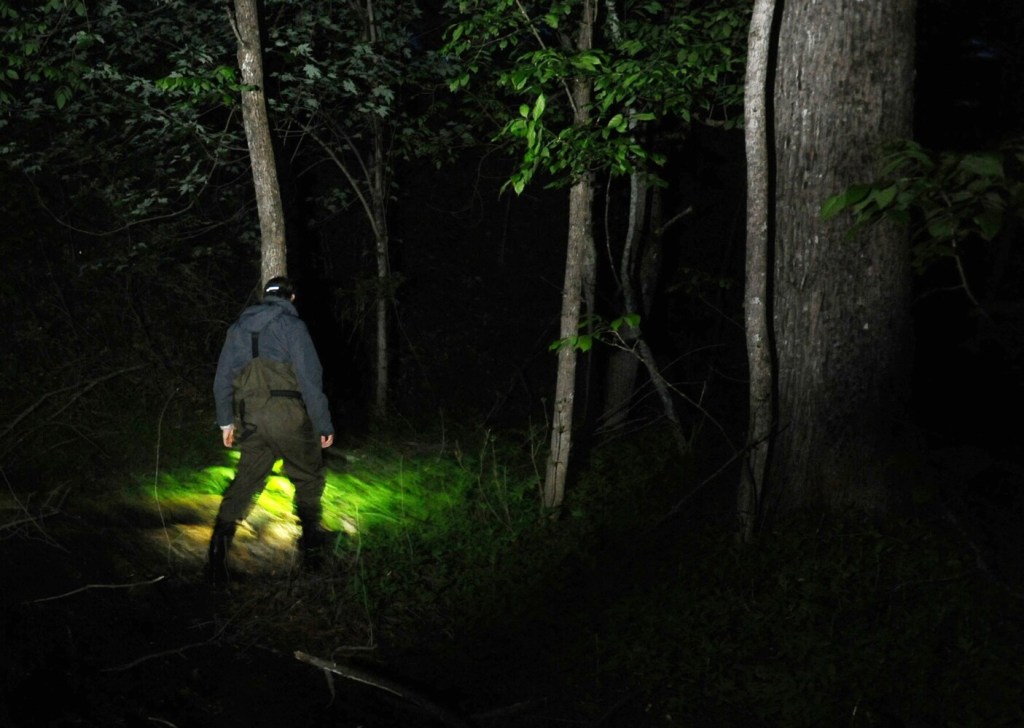

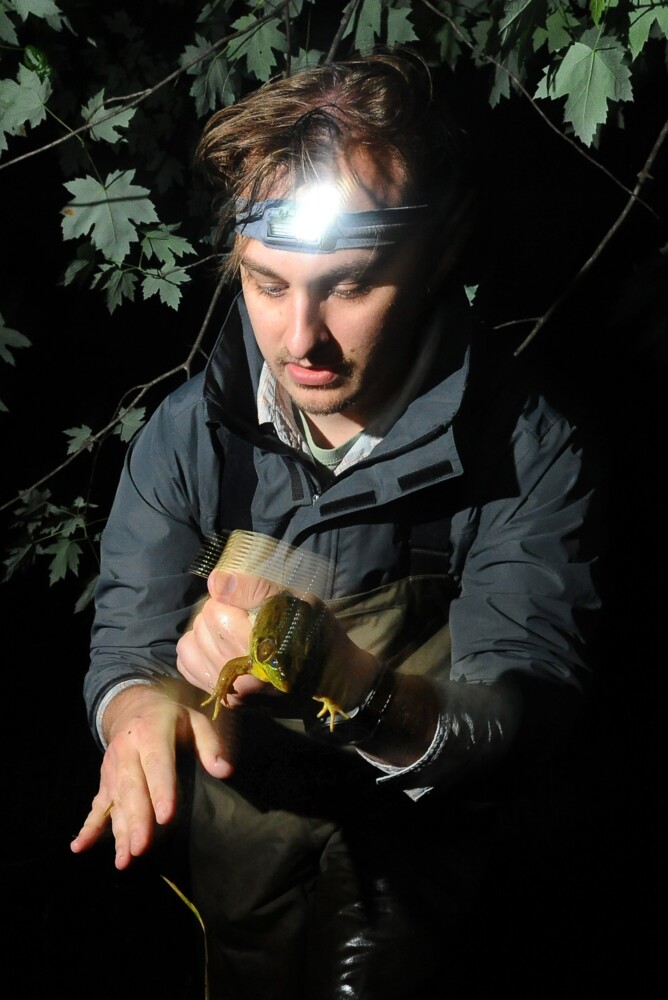
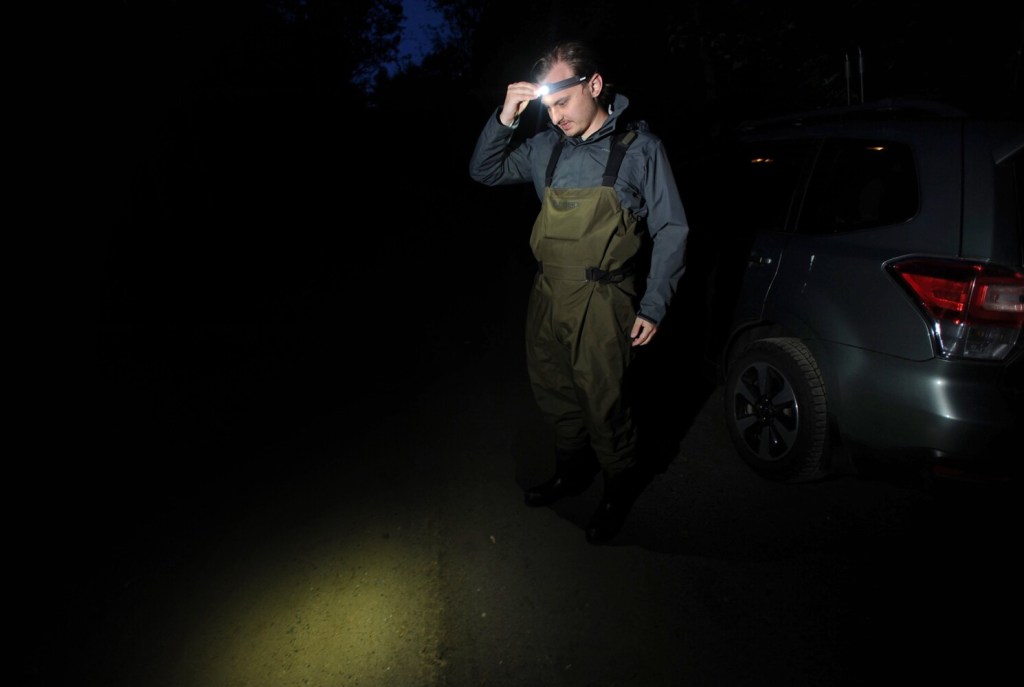

Comments are no longer available on this story